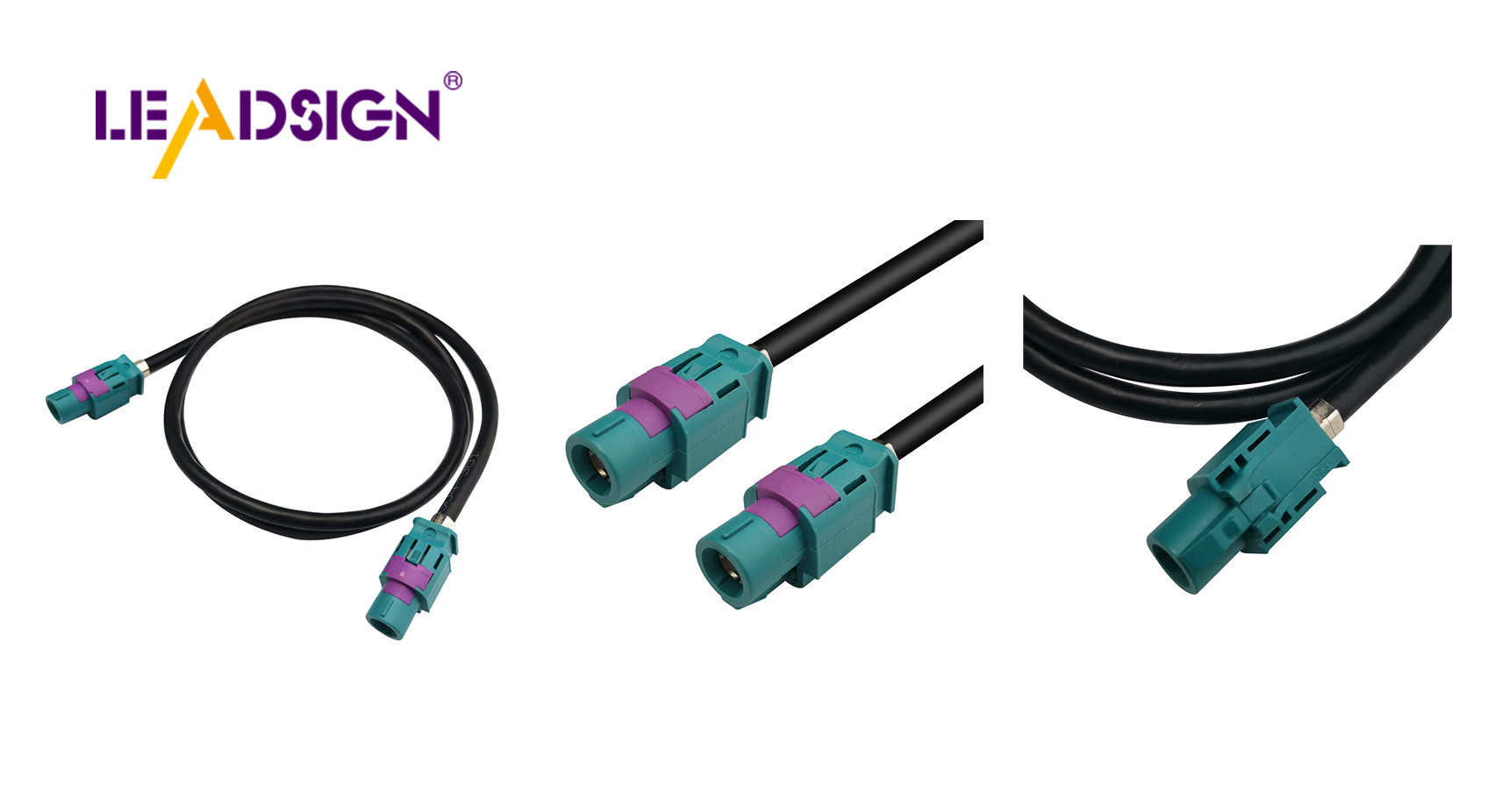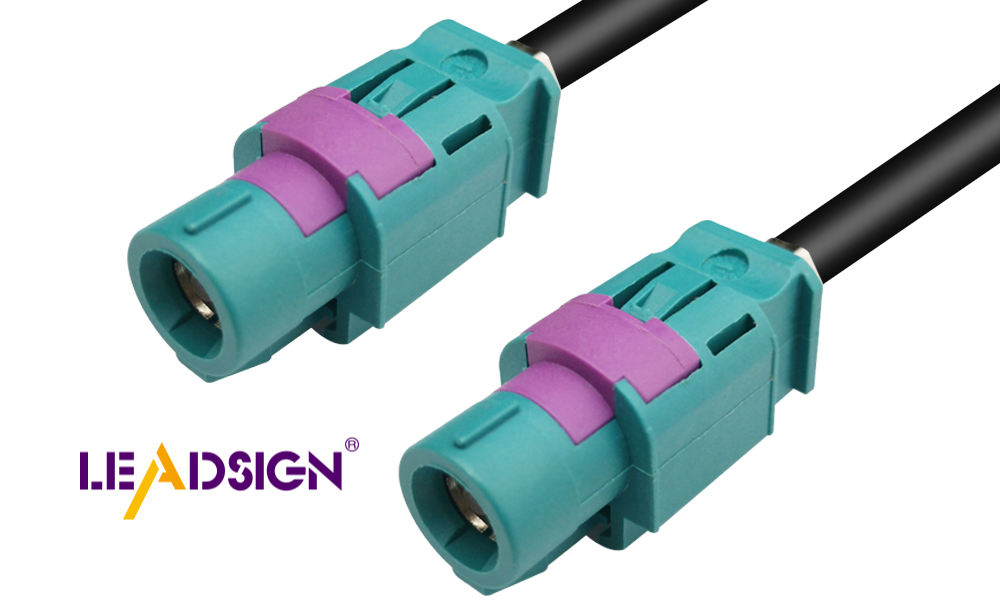What Are Vehicle Connectors and Their Different Types

Vehicle connectors play a crucial role in ensuring your car operates smoothly. These small components connect wires and cables, allowing the car's electrical systems to function effectively. They enable the engine, transmission, and sensors to communicate vital information. Designed to withstand heat, vibrations, and moisture, these connectors are essential for reliable performance. Without high-quality vehicle connectors, your car could experience failures and become unsafe.
Key Takeaways
Vehicle connectors are essential for the smooth operation of your car, enabling communication between critical systems like the engine and sensors.
Choosing the right connector depends on your vehicle's specific needs, such as power requirements and environmental conditions; always match the connector to the system for optimal performance.
Consulting with experts can save time and prevent mistakes, especially for complex systems; their guidance ensures you select connectors that meet your car's demands.
Types of Vehicle Connectors

Vehicle connectors have different types for specific car system needs. Let’s look at some common ones.
Pigtail Connectors
Pigtail connectors are very useful and flexible. They have a male or female end with wires joined together. These are used in car systems like lights, speakers, and navigation. They help connect head units to power or other devices like amplifiers. Their adaptability makes them popular in many car setups.
Common uses include:
Hooking up speakers.
Adding devices like CD players.
Using satellite navigation systems.
Bullet Connectors
Bullet connectors are small and round, snapping together tightly. They are great for quick and easy connections in car wiring. You’ll often see them in lights and wiring harnesses. Their small size works well in tight spaces.
Terminal Blocks
Terminal blocks help organize many wires in one place. They connect multiple wires to a single point, making them great for complex systems. These are often used in control panels and distribution setups for neat wiring.
Crimp Connectors
Crimp connectors are very common in car wiring. They attach to wires by crimping, creating a strong connection. This group includes bullet, spade, and butt connectors. They are simple and work well in most vehicles.
Connector Type | Description |
|---|---|
Crimp Connectors | Common, crimped onto wires, includes bullet, spade, and butt types. |
Heat Shrink Connectors | Covered in heat-shrink tubes, good for wet conditions. |
Weather Pack Connectors | Made for tough conditions, resist heat and chemicals. |
Deutsch Connectors | Strong, used in heavy-duty systems, block dirt and water. |
Molex Connectors | Flexible, used in systems needing frequent plugging. |
USB Connectors | Used for connecting phones and entertainment systems. |
High-Speed Data (HSD) Connectors
High-Speed Data (HSD) connectors are for fast data transfer. They are used in USB, Ethernet, and camera systems. These connectors are key for infotainment and communication in modern cars. They have locks and coding to ensure secure and error-free use.
Tip: HSD connectors are great for advanced car systems.
How Vehicle Systems Affect Connector Selection
Picking the right automotive electrical connectors depends on your car's system. Each system has special needs, so understanding them helps you choose better.
Engine Management Systems
Engine systems need clear communication between sensors and control units. Connectors must handle high power and resist heat and dirt. They should also be strong enough to handle shaking and strain. High-density connectors are best for managing many signals in small spaces.
Lighting and Electrical Systems
Lighting systems need connectors that handle different power levels. Strong connectors stop overheating and last through constant vibrations. Waterproof ones are important to keep out water damage. Easy-to-use connectors make installation simple and quick.
Audio and Infotainment Systems
Modern audio systems need fast data transfer connectors. USB or Ethernet connectors work well for smooth communication. High-Speed Data (HSD) connectors are perfect for streaming and navigation. These connectors have locks to avoid mistakes during setup.
Hybrid and Electric Vehicle Systems
Hybrid and electric cars need connectors for high power and voltage. Shielding stops interference from other signals. Fast charging needs connectors that handle more power and stay cool. These connectors must also survive tough conditions like heat and shaking.
Tip: Always match the connector to the system for best results.
Tips for Picking the Right Automotive Electrical Connectors
Choosing the right automotive electrical connectors can seem tricky, but it’s manageable. Here are some simple tips to help you pick the best ones.
Think About Your Vehicle and System Needs
First, know what your car needs. Different systems, like engines or infotainment, need special connectors. Check for power needs, water resistance, and cable fit. For example, electric cars need connectors for high voltage and tough conditions. Also, check voltage and current ratings to avoid damage. If your car faces harsh weather, pick connectors that block water, dust, and chemicals.
Check Pin Layout and Connector Design
The pin layout and design affect how well a connector works. Good connectors stay secure even with vibrations. Look for seals that block water and stop rust. Some connectors have springs to handle temperature changes. These small details make connectors last longer and work better.
Look at Connector Material and Color
Connector materials and colors are important for function, not just looks. Metals like copper are great for conducting electricity and resisting rust. Strong plastics handle heat and stay durable. Coatings like gold or nickel protect against wear. Colors help you quickly find connectors in complex wiring.
Ask Experts for Help with Complex Systems
For advanced systems, don’t be afraid to ask experts. They can help you choose connectors that fit your car’s needs. Experts check ratings, locking features, and materials for you. Their advice can save time and prevent mistakes. For tricky setups, expert help is worth it.
Tip: Always match the connector to the system for the best results.
Knowing about vehicle connectors helps your car work well. They let systems, like air conditioning or music, talk to each other. Connectors also keep wires safe from harm. Picking the right one makes your car perform better and avoids problems. For tricky setups, ask an expert to find the best match.
FAQ
What are the most used vehicle connectors?
The most used ones are pigtail, bullet, crimp, and HSD connectors. They each have jobs like linking lights, speakers, or car systems.
How can I pick the right connector?
Think about what your car needs. Check power levels, water protection, and strength. For tricky setups, ask an expert for help.
Can I change vehicle connectors myself?
Yes, you can change simple ones like bullet or crimp types. For harder ones, like HSD connectors, experts can install them safely.
See Also
Why Fakra Connectors Matter in Today's Vehicles
Benefits of HFM Connectors for Automotive Applications
Transforming Vehicle Connectivity with HFM Connector Benefits

